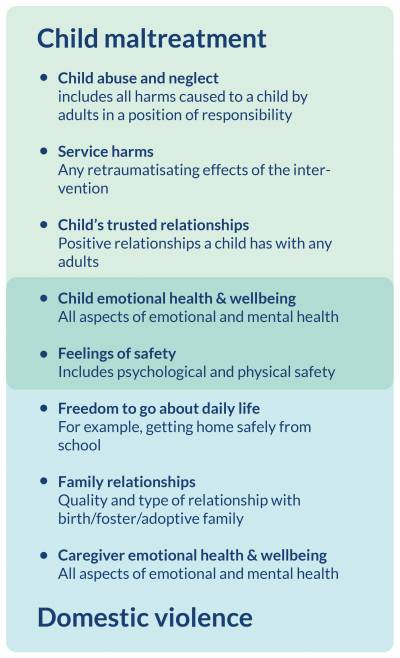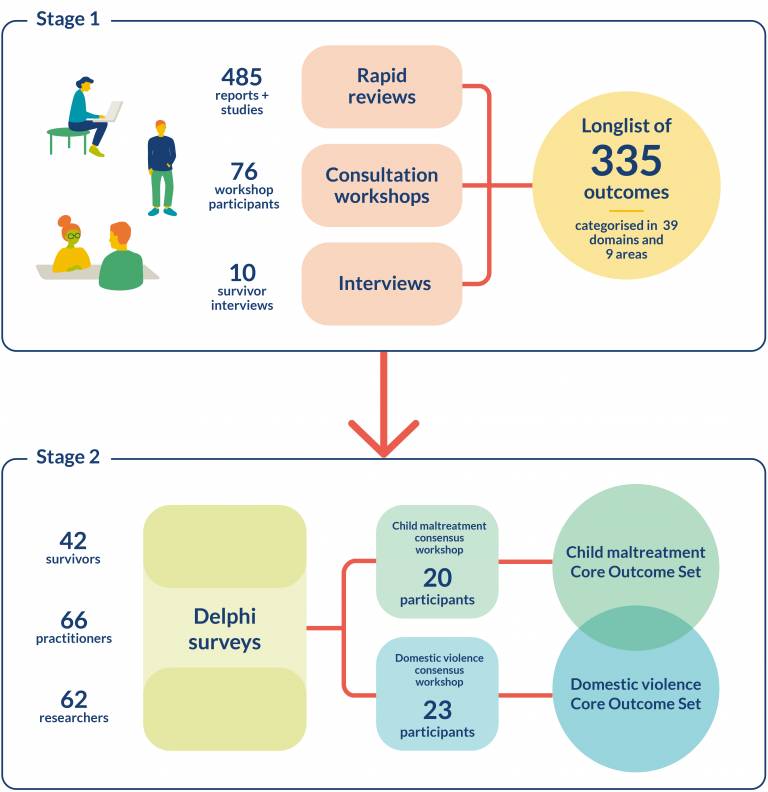Development of core outcome sets for family and child-focused interventions for child maltreatment and domestic violence
Dates
April 2019 – September 2021
Research Team
Professor Gene Feder, Professor Ruth Gilbert, Dr Emma Howarth, Dr Claire Powell
Theme
Responding to vulnerable children and families
Key messages
- We developed two core outcomes sets that those who use, deliver and commission services agreed were the most important to measure.
- We involved survivors of violence and abuse and practitioners at every stage of the process.
- The aim is for the core outcome sets to be reported as a minimum in evaluations of child maltreatment and domestic violence interventions where the child is the focus; this includes interventions delivered to caregivers or other family members.

Implications
By applying the core outcome sets in different contexts we will understand the challenges in collecting these outcomes. We welcome all use and feedback.
Work is needed to understand whether the outcomes need adapting for minoritised groups. We will carry out further work to address this.
The next stage is a consensus process on how core outcomes should be measured. This will involve making the outcomes more specific and scoping how they are currently measured. The first stage of this work has begun. You can find out more on our research repository.
What we did

Home Office comissioned review of tools measuring the domestic violence and abuse core outcomes (DVA-COS)
Members of the core outcome set team were funded by the Home Office to review measurement tools that could be used when measuring the domestic violence and abuse core outcomes (DVA-COS). We ran an abridged consensus and review process with an international group of experts to understand which tools they felt were most feasible and acceptable to be used to evaluate child-focused domestic abuse interventions. We found that many tools are not trauma-informed and only one measurement tool met everyone’s criteria. You can read the full report here:
 Close
Close

